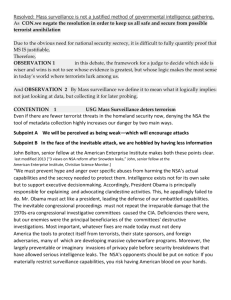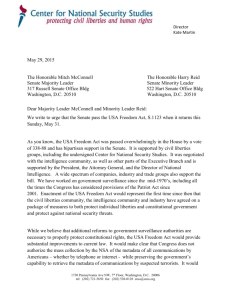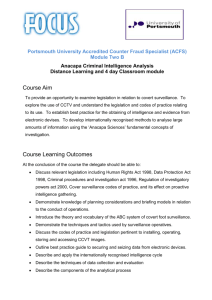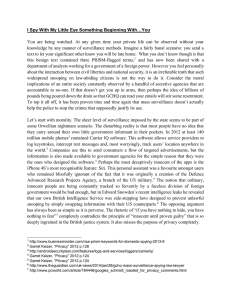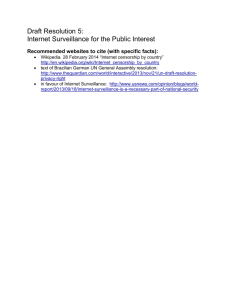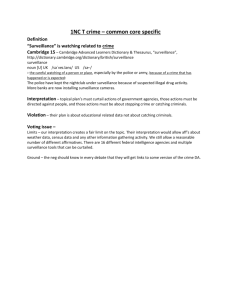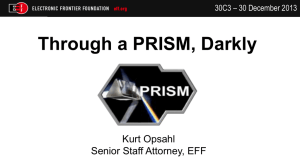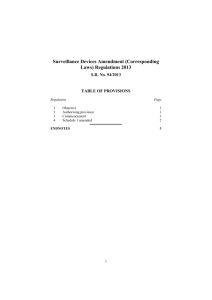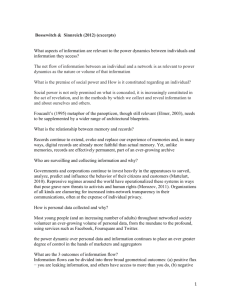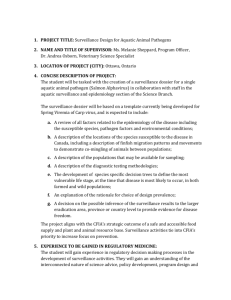View Resource - Center for National Security Studies
advertisement
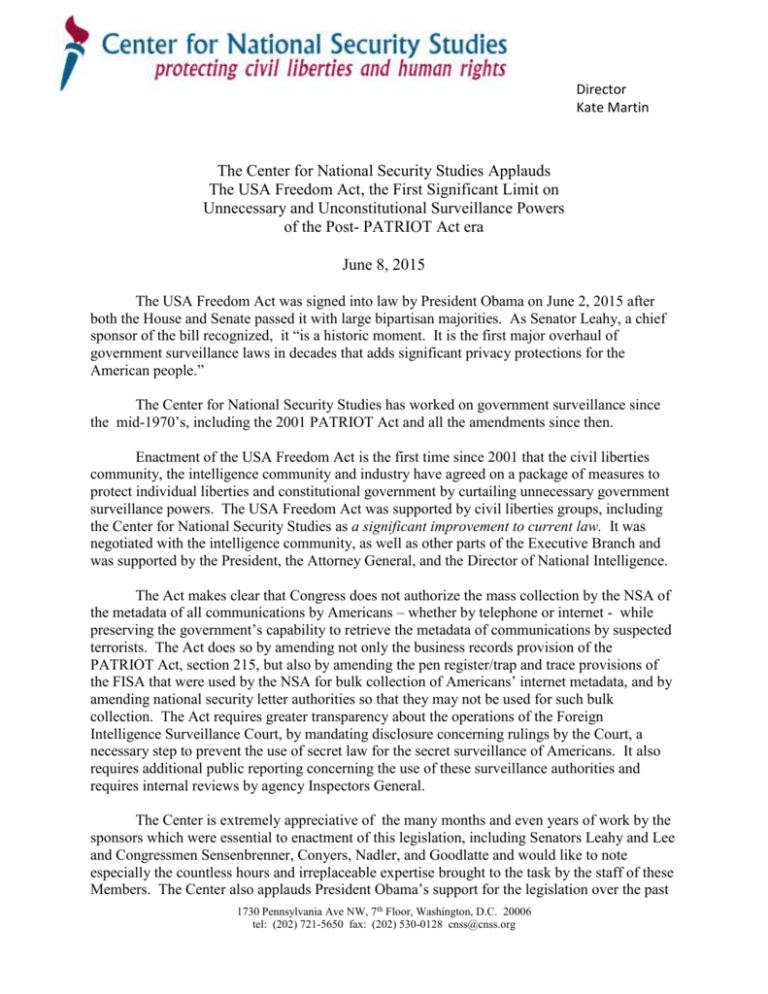
Director Kate Martin The Center for National Security Studies Applauds The USA Freedom Act, the First Significant Limit on Unnecessary and Unconstitutional Surveillance Powers of the Post- PATRIOT Act era June 8, 2015 The USA Freedom Act was signed into law by President Obama on June 2, 2015 after both the House and Senate passed it with large bipartisan majorities. As Senator Leahy, a chief sponsor of the bill recognized, it “is a historic moment. It is the first major overhaul of government surveillance laws in decades that adds significant privacy protections for the American people.” The Center for National Security Studies has worked on government surveillance since the mid-1970’s, including the 2001 PATRIOT Act and all the amendments since then. Enactment of the USA Freedom Act is the first time since 2001 that the civil liberties community, the intelligence community and industry have agreed on a package of measures to protect individual liberties and constitutional government by curtailing unnecessary government surveillance powers. The USA Freedom Act was supported by civil liberties groups, including the Center for National Security Studies as a significant improvement to current law. It was negotiated with the intelligence community, as well as other parts of the Executive Branch and was supported by the President, the Attorney General, and the Director of National Intelligence. The Act makes clear that Congress does not authorize the mass collection by the NSA of the metadata of all communications by Americans – whether by telephone or internet - while preserving the government’s capability to retrieve the metadata of communications by suspected terrorists. The Act does so by amending not only the business records provision of the PATRIOT Act, section 215, but also by amending the pen register/trap and trace provisions of the FISA that were used by the NSA for bulk collection of Americans’ internet metadata, and by amending national security letter authorities so that they may not be used for such bulk collection. The Act requires greater transparency about the operations of the Foreign Intelligence Surveillance Court, by mandating disclosure concerning rulings by the Court, a necessary step to prevent the use of secret law for the secret surveillance of Americans. It also requires additional public reporting concerning the use of these surveillance authorities and requires internal reviews by agency Inspectors General. The Center is extremely appreciative of the many months and even years of work by the sponsors which were essential to enactment of this legislation, including Senators Leahy and Lee and Congressmen Sensenbrenner, Conyers, Nadler, and Goodlatte and would like to note especially the countless hours and irreplaceable expertise brought to the task by the staff of these Members. The Center also applauds President Obama’s support for the legislation over the past 1730 Pennsylvania Ave NW, 7th Floor, Washington, D.C. 20006 tel: (202) 721-5650 fax: (202) 530-0128 cnss@cnss.org year and a half and appreciates the work done by the intelligence community, including the ODNI, the NSA and the DOJ to negotiate a bill consistent with the President’s objectives, which would advance privacy and government transparency and accountability. Additional reforms to government surveillance authorities that have mushroomed in the past fourteen years are still needed to properly protect constitutional rights. We look forward to continuing to work with the Executive and the Congress to identify the information that is necessary for an informed public debate and then engaging in a public democratic process to identify additional reforms that will both restore constitutional protections and serve legitimate national security needs. In the meantime, we expect the government to adopt all necessary procedures to faithfully implement the publicly understood intentions of Congress as quickly as possible. In particular, we expect that the executive will faithfully implement its commitments to ending bulk collection of communications metadata and to insuring transparency concerning the scope of surveillance and the interpretations of the legal authorities being used. For further information, please contact Kate Martin at kmartin@cnss.org or Joe Onek at jonek@rabengroup.com. 2

